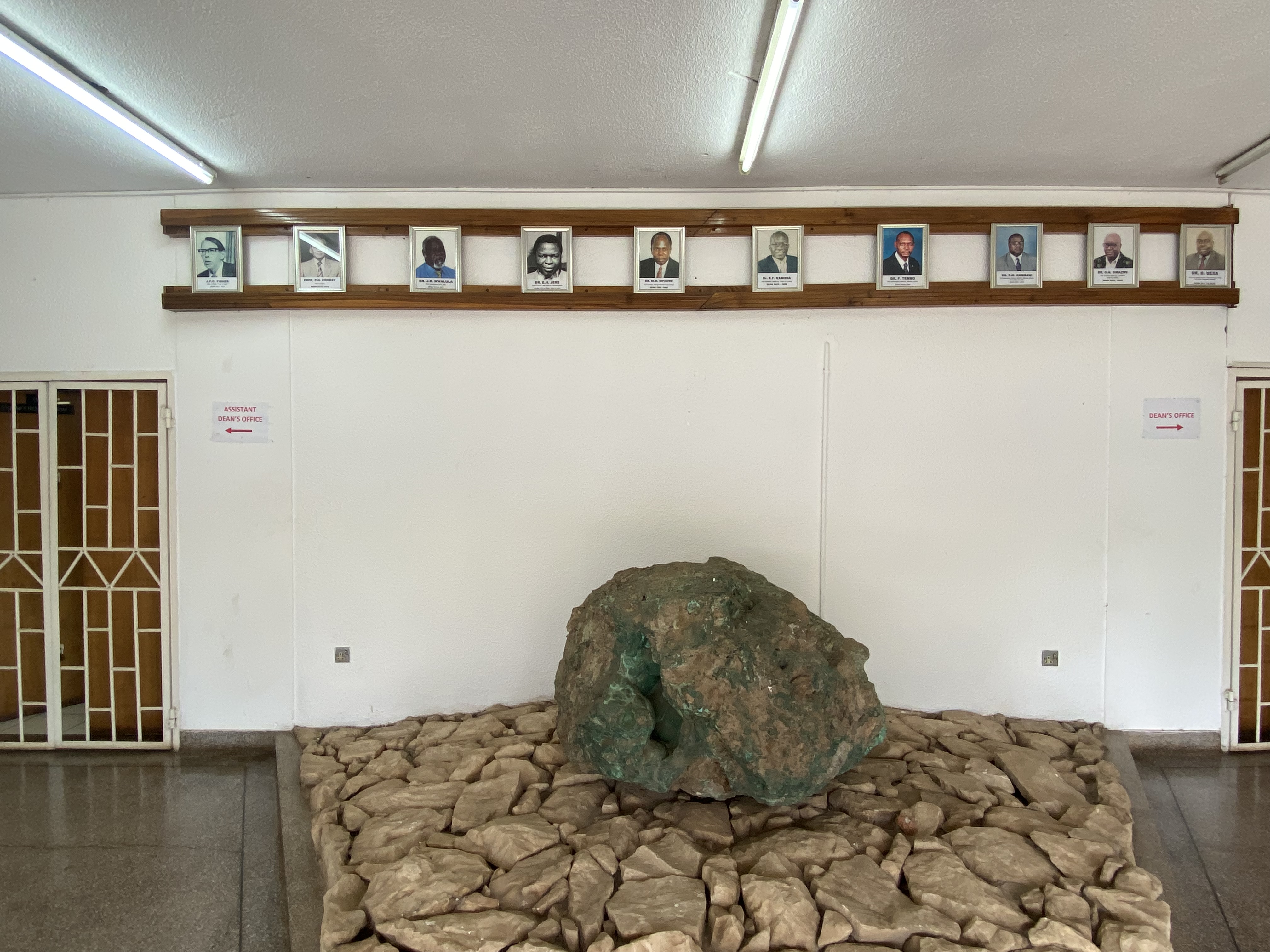The Mining Industry still remains the mainstay of Zambia’s economy and will continue to play an important role in the development of the country. It is in the context of an acute shortage of graduate manpower for this vital industry that the School of Mines was established in 1973 as one of the Schools of the University of Zambia. Hence, the School has a most important part to play in the national life of Zambia, in the training and production of much needed professional geologists, mining engineers and metallurgists, who are needed by the existing mining industry and, indeed, by the future industries that are now in the pipeline. The three departments of the School, namely, Geology, Mining Engineering, and Metallurgical Engineering reflect the most important disciplines involved in the search for ores, their recovery from the ground and the extraction of metals from these ores.
The School of Mines offers a four-year programme of study leading to the degree of Bachelor of Engineering. Students are admitted to the School of Mines on a competitive basis after successfully completing the first year in the School of Natural Sciences. Upon entering the School of Mines, the students are directed to one of the three disciplines, depending mainly on their personal preferences and also on the guidance of the staff of the School, especially the Heads of Department. However. personal preference does not necessarily guarantee admission to any of the three departments as much would depend upon the background of the student. We also have Bachelor of Science in Ocupational Health and Safety, Bachelor of Engineering in Geotechnical Engineering, a Certificate in Mine Surveying, and a Diploma in Mining Engineering.

In order to maintain the relevance of the training in the School of Mines to the Zambian industry, the School has close contacts with the mining industry. Most of the industrial training of the students is done with the mines. In addition, the mines do provide part-time lecturers and visiting staff from time to time. As a result, the School’s Advisory Committee comprises, in part. members from the mining industry.
The School of Mines started postgraduate programmes leading to the degree of Master of Mineral Sciences (MMinSc) in all three disciplines in 1983. This was followed by the introduction of multi-disciplinary Master of Mineral Sciences degree in Small Scale Mining in 1999. In principle, MMinSc studies at the School of Mines can be either by course work, followed by research, or by research only.
Vision
School of Mines to be a leader in provision of higher education in mines and mineral sciences in the region and beyond, celebrated for its comprehensive and rigorous teaching, learning, research and scholarly programmes that are responsive to the needs of individuals, industry and society.
Mission Statement
School of Mines is a centre of excellency in the provision of teaching, research and consultancy services to individuals, the public and industry in Zambia, region and beyond in the area of mines and mineral science programmes.
Shared Values
Excellence, Equity, Accountability, Transparency, Social Justice, Integrity, Search for New Knowledge, Inclusiveness, Critical Thinking, Academic Freedom, Innovativeness & Service.
